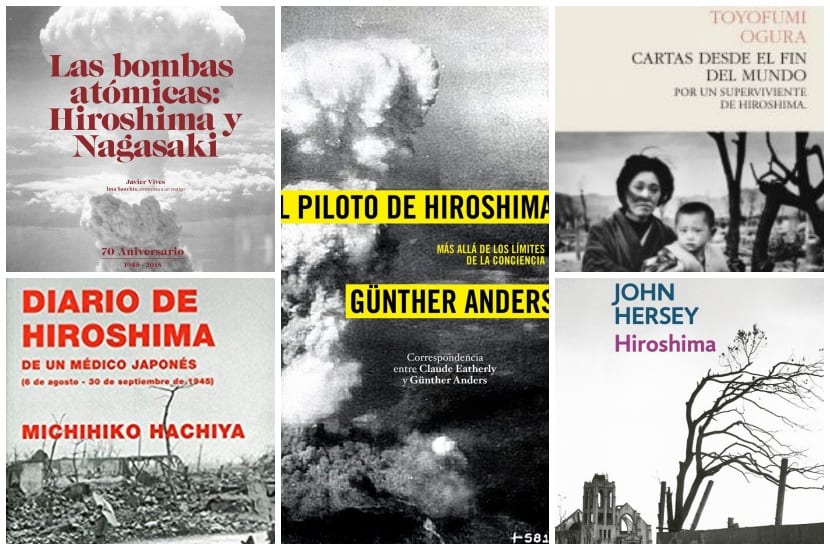
August 6, 1945. Hiroshima. A date and a place in the world anchored in one of the darkest and most regrettable memories in the history of mankind. These are 5 readings to ponder over them once more. They sign them actors and survivors of the nuclear hecatomb that also devastated Nagasaki three days later.
Atomic bombs: Hiroshima and Nagasaki - Javier Vives
This book was released for the Commemoration of the 70th anniversary of the dropping of the atomic bombs on Hiroshima and Nagasaki. Available online and with the support of the Japanese embassy in Spain and the Japan Foundation, is a tribute to these two cities whose bombardment put the end to a war in the most forceful and definitive way. Also includes a interview made by the journalist Inma Sanchís to a witness of the tragedy.
Hiroshima Diary of a Japanese Doctor - Michihiko Hachiya
His actor he was a doctor assigned to the communications hospital from Hiroshima. Injured in the explosion, managed to recover and dedicated himself to helping the other survivors. His desolation by the proliferation of incomprehensible diseases until that moment was as much as the humiliation by the surrender of his homeland and of the divine emperor. But he continued to have reasons to live.
The Hiroshima Pilot - Günther Anders
This book collects the correspondence that kept the Viennese philosopher Günther Anders y Claude eatherly, the pilot who dropped the bomb on Hiroshima. It already shows and reflects as a classic with a timeless theme the guilty feeling the pilot suffered after realizing the disaster he had helped to cause.
In fact, the order had been to destroy the bridge between the headquarters and the city of Hiroshima, but a miscalculation made the bomb fall on the city. Back to base, Eatherly promised to dedicate himself to the fight against nuclear weapons. And the terrible thing that happened marked the rest of his days.
Letters from the end of the world - Toyofumi Ogura
With the subtitle of By a Hiroshima survivor, this book is other first hand testimony of someone who suffered it all and was able to tell about it. Also epistolary, a year after the catastrophe Ogura writes a series of shocking letters to his dead wife about what happened at that time.
Hiroshima - John Hersey
Today this title has sold more than a million copiesIs a benchmark of journalism research and also already a classic war literature. It is the only article, among the thousands of writings on the atomic bomb, that describes what life was like for survivors of a nuclear attack. In addition, it is considered the most famous magazine article ever published.
In the summer of 1945 William shawn, Director of The New Yorker, spoke with him journalist John Hersey about posting a story that focused on the most human aspect of the effects of the atomic bomb in Hiroshima. He thought that despite all the information received about the bomb, what had really happened there was not commented on or overlooked.
Hersey accepted the assignment and traveled to Hiroshima to investigate and interview several survivors of the blast from whom he ultimately chose. six testimonials: a office worker, Toshiko Sasaki; a doctor, Masakazu Fuji; a widow with three young children, Hatsuyo Nakamura; a missionary German, Father Wilhem Kleinsorge; a young man surgeon, Terufumi Sasaki, and a Pastor Methodist, Reverend Kiyoshi Tanimoto.
Its publication shocked society. It was in a report of a monothematic edition from The New Yorker a year and a month after the tragedy. The magazine sold out and requests came in from all over the world for its reprint. Afterwards, its dissemination was like wildfire and in a few months the Alfred A. Knopf publishing house published it as a book. The following year it had already been translated and published all over the planet.